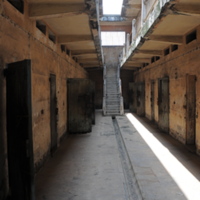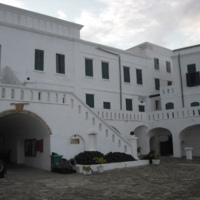2 results
Legacies on Display: Slavery in Museums
Museums are exciting places to see the usable past in action. They bring together objects, people and places to provide interpretation and facilitate discussions on a range of topics, from history to human rights. There is a global tradition of museums representing slavery beginning in the early twentieth century. These museums range from small, local community museums in the UK, that focus on individual abolitionist leaders, to redeveloped slave forts on the West African coast and large national institutions in North America. As well as providing visitors with information about slavery, both historic and modern, museums can also provide evidence as to how societies are thinking about these issues.
This collection showcases museums across the world that house permanent exhibitions relating to slavery and abolition.

Ussher Fort Museum
The museum is housed within Ussher Fort, one of three European forts built in the Accra region of Ghana during the mid-seventeenth century. Developed by Ghana's Ministry of Tourism, with support and funding from UNESCO, the museum opened in 2007.
The museum aims to highlight the history of the…

Cape Coast Castle
Cape Coast Castle is one of around forty ‘slave castles’ built by European traders on the coast of West Africa and used to hold enslaved Africans prior to their being transported to the Americas or the Caribbean. The first timber construction on the site was erected in 1653 for the Swedish…